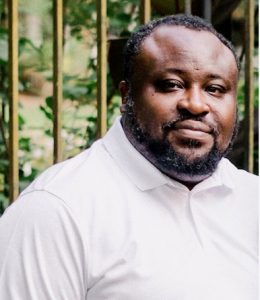Liberty Hill principal to serve permanently
April 25, 2022Charleston County School District (CCSD) is proud to announce Corey Shaw as principal at Liberty Hill Academy (LHA). Shaw served as the school’s interim principal during the 2021-2022 school year. He joined Liberty Hill from InterMediate Planning where he served as Educational Director and Trainer.
Shaw began his career as a human service specialist at the Medical University of South Carolina (MUSC) in 2003. In this role, Shaw assisted adolescents in managing behavioral, emotional, and psychological issues, as well as provided support on the substance abuse, geriatric, acute, and mood disorder units in the Institute of Psychiatry. Shaw regularly lead/co-lead patient Learning Groups and was responsible for counseling and monitoring mental health patients. He was promoted twice during his time with MUSC and served as the unit representative for various meetings with MUSC administration.
In 2011, Shaw became a professional school counselor at Sanders-Clyde Elementary School. As a school counselor, Shaw served as a mediator for students or teachers in challenging situations, as well as consulted with teachers to create a classroom environment that was conducive to the learning, maturity, and interest of students. He also trained and supported staff members in school-wide systems and routines and was responsible for ensuring the implementation and fidelity of school culture.
Four years after coming to Sanders-Clyde, Shaw was promoted to interim assistant principal for a year. As part of the administration, Shaw was responsible for interviewing and hiring qualified and effective teachers and for the school-wide master schedule and classroom teacher schedule. Shaw served in this role for one year before eventually taking a position at Meeting Street Elementary at Brentwood as its assistant principal.
During his three years at Meeting Street Elementary at Brentwood, Shaw served as a reconciliation and training expert for students and teachers in times of crisis. He also created culturally relevant professional development training and helped shape school-wide policies to appropriately address race and socioeconomic challenges of students and families. In addition to leading bi-weekly grade-level team meetings, Shaw trained and advised teachers in their application of Teacher Like A Champion (TLAC) and practiced and taught restorative discipline. He also helped transform student support by creating a student house and teacher advisory system to ensure the effective application of social-emotional curriculum.
Shaw earned a Bachelor of Arts in Sociology from Morris College, a Master of Arts in Clinical Counseling from Webster University, and a Master of Education in Counselor Education and an Educational Specialist degree in Educational Leadership from South Carolina State University. Shaw is a certified family and mental health counselor and a certified Relay/GSE National Principal Academy Fellow (NSPA). In addition to receiving several outstanding job performance awards during his time at MUSC, Shaw has also dedicated his time to volunteering on the Berkeley County Mental Health Board and through his fraternity, Alpha Phi Alpha Fraternity, Inc. Beta Kappa Lambda Alumni Chapter in Charleston.
For more information, contact the Division of Strategy and Communications at (843) 937-6303.
About the Charleston County School District
Charleston County School District (CCSD), a nationally-accredited school district, is the second largest school system in South Carolina representing a unique blend of urban, suburban, and rural schools spanning 1,300 square miles along the coast. CCSD serves more than 50,000 students in 87 schools and specialized programs. With approximately 6,100 employees district-wide, CCSD is the fourth largest employer in the region.
CCSD offers a diverse, expanding portfolio of options and specialized programs, delivered through neighborhood, charter, magnet, IB (international baccalaureate), and Montessori schools, and is divided into three Learning Communities. Options include specialized programs in science, engineering and mathematics; liberal arts; music and other creative and performing arts; career and technical preparation programs; and military and other public service enterprises.













